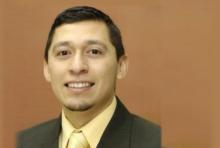Josué Estrada recently earned his master's degree in history, and is moving full speed ahead with his doctoral work. His dissertation will expand on themes he explored in his MA research: internal migration in the U.S., the complex formation of rural Mexican American communities, the dynamics of voter suppression among Mexican Americans, and the Mexican American movement against voter literacy tests.
"Studying Chicano communities in places like Washington State offers new perspective on the struggles for racial equality and cultural identity taking place in the 1960s and 1970s. For example, this research sheds light on the results and limits of the Voting Rights Act of 1965 outside the American South," remarked Estrada. "It also shows that Chicanos were not just challenging literacy tests, but expanding the definition of American citizenship to include their distinctive racial, cultural, linguistic, and transborder identity."
For Estrada, the vistas of history opened up as an undergraduate at UW. "In high school, I read perhaps one paragraph about Spanish-speakers—about the early Spanish explorers in the Pacific Northwest. I didn't see myself in history. But at UW, taking classes in Chicano history, it was empowering to see that people of Mexican descent had played a significant role in influencing events in the U.S. and the Pacific Northwest. I wanted to be a part of writing that history." Now as a member of the graduate program, Estrada is already well on his way to that goal.
